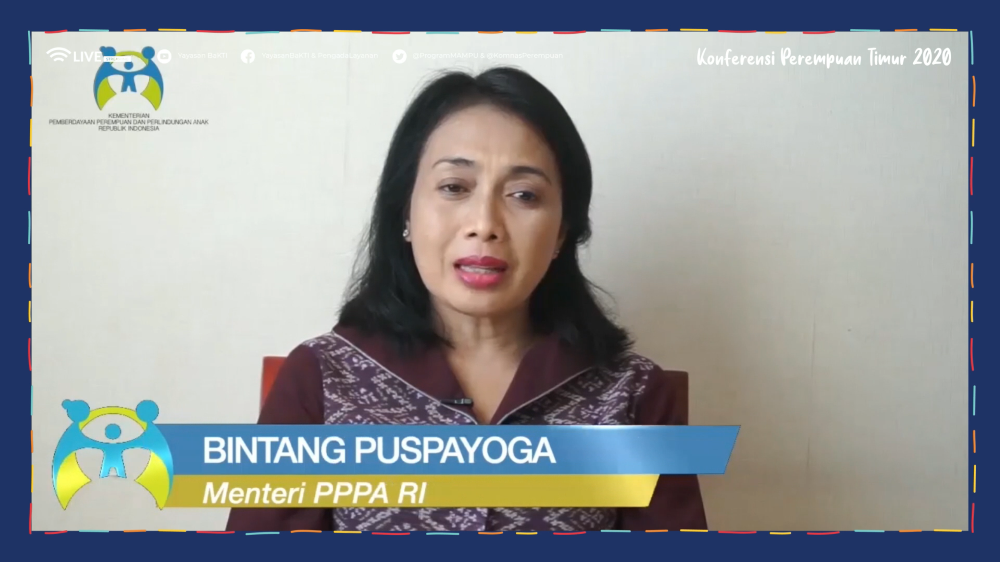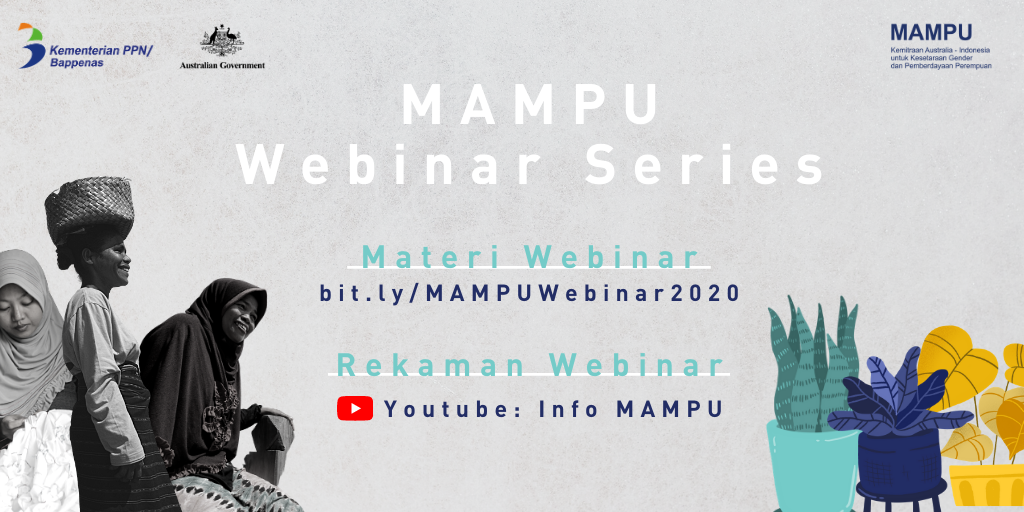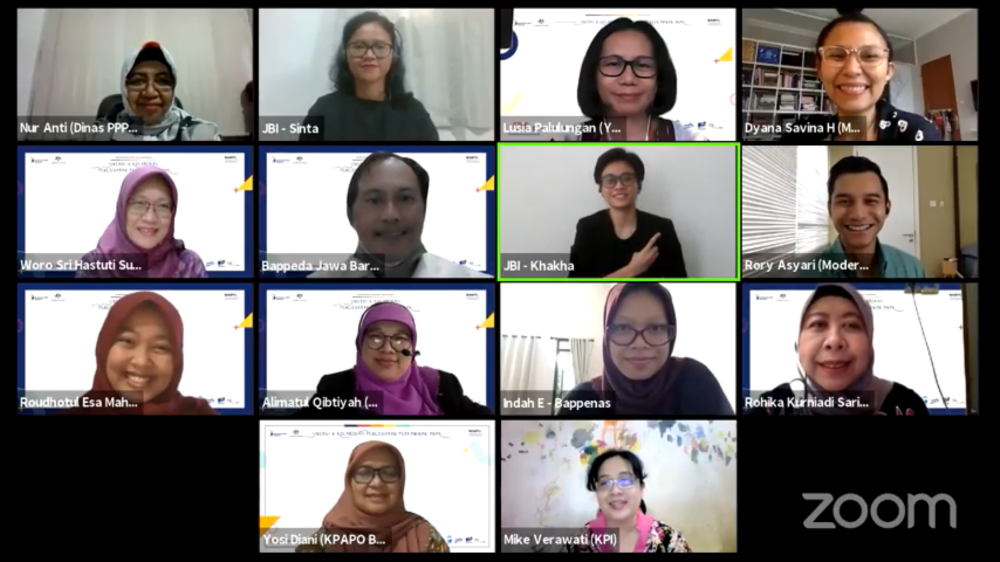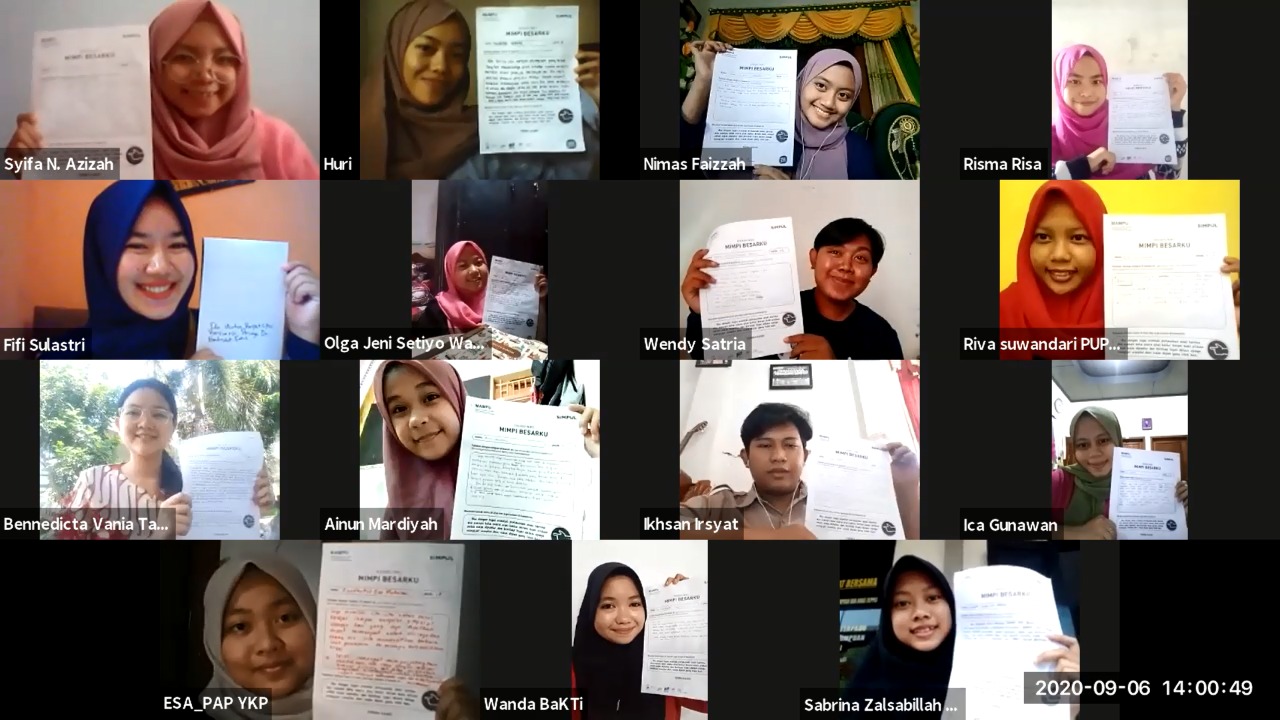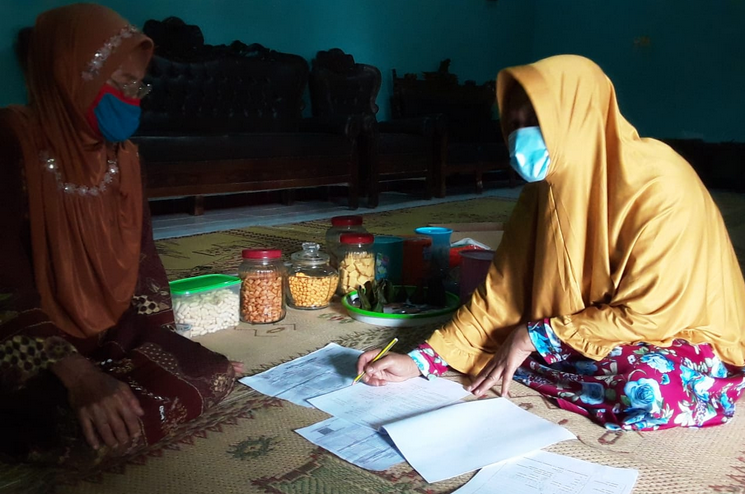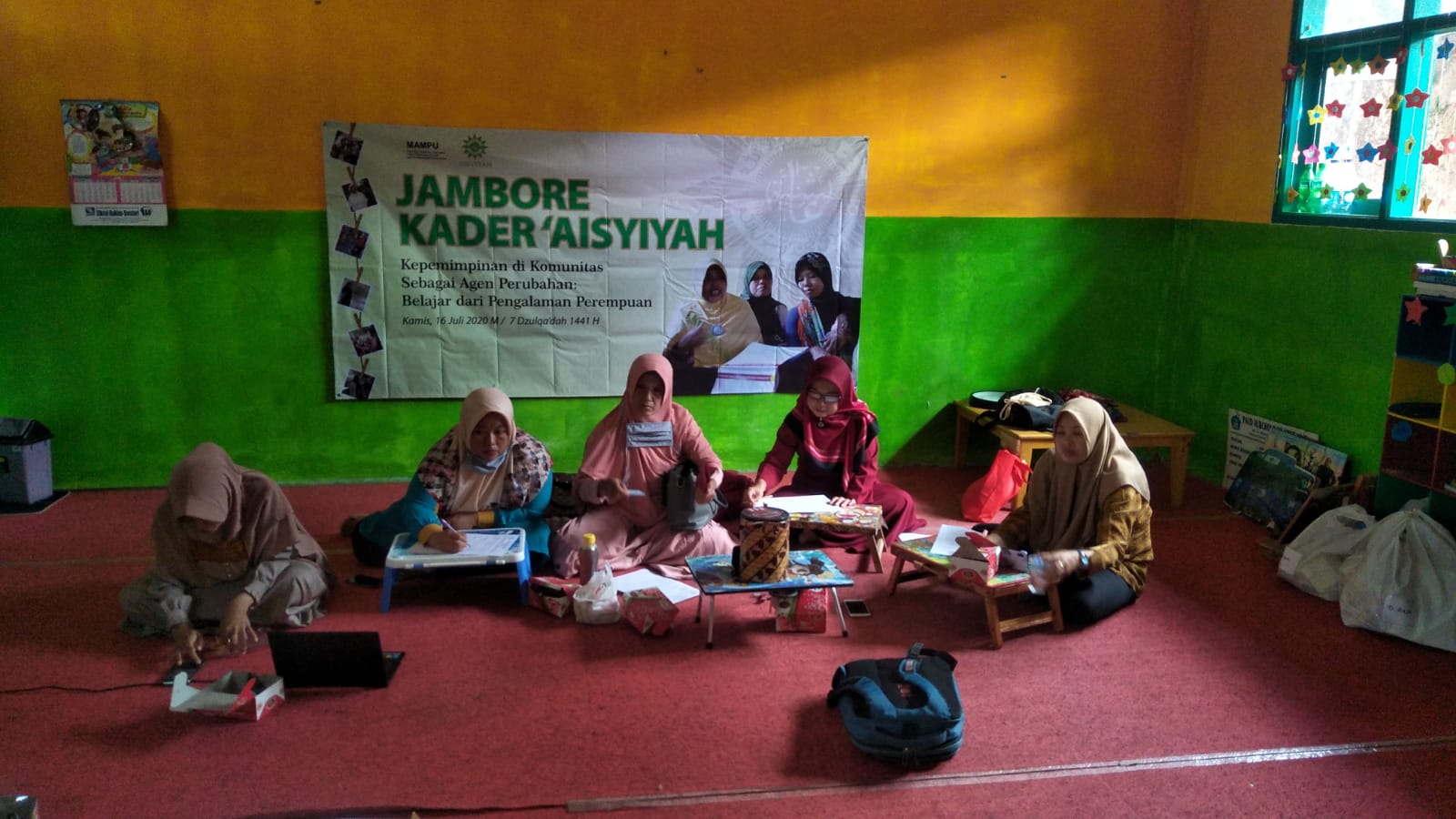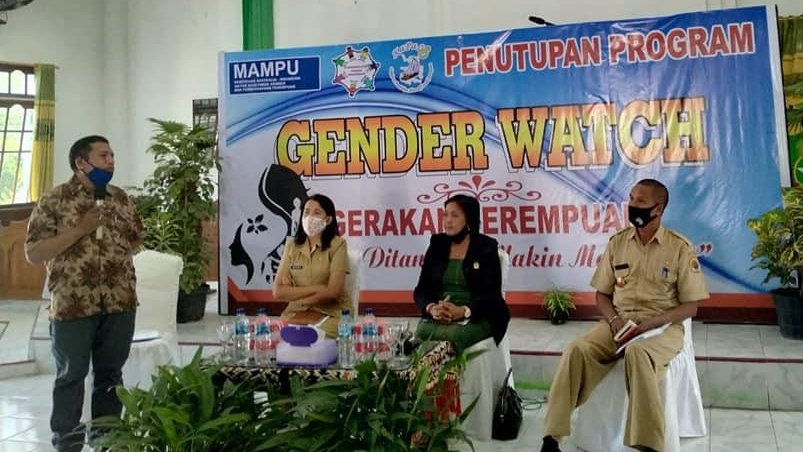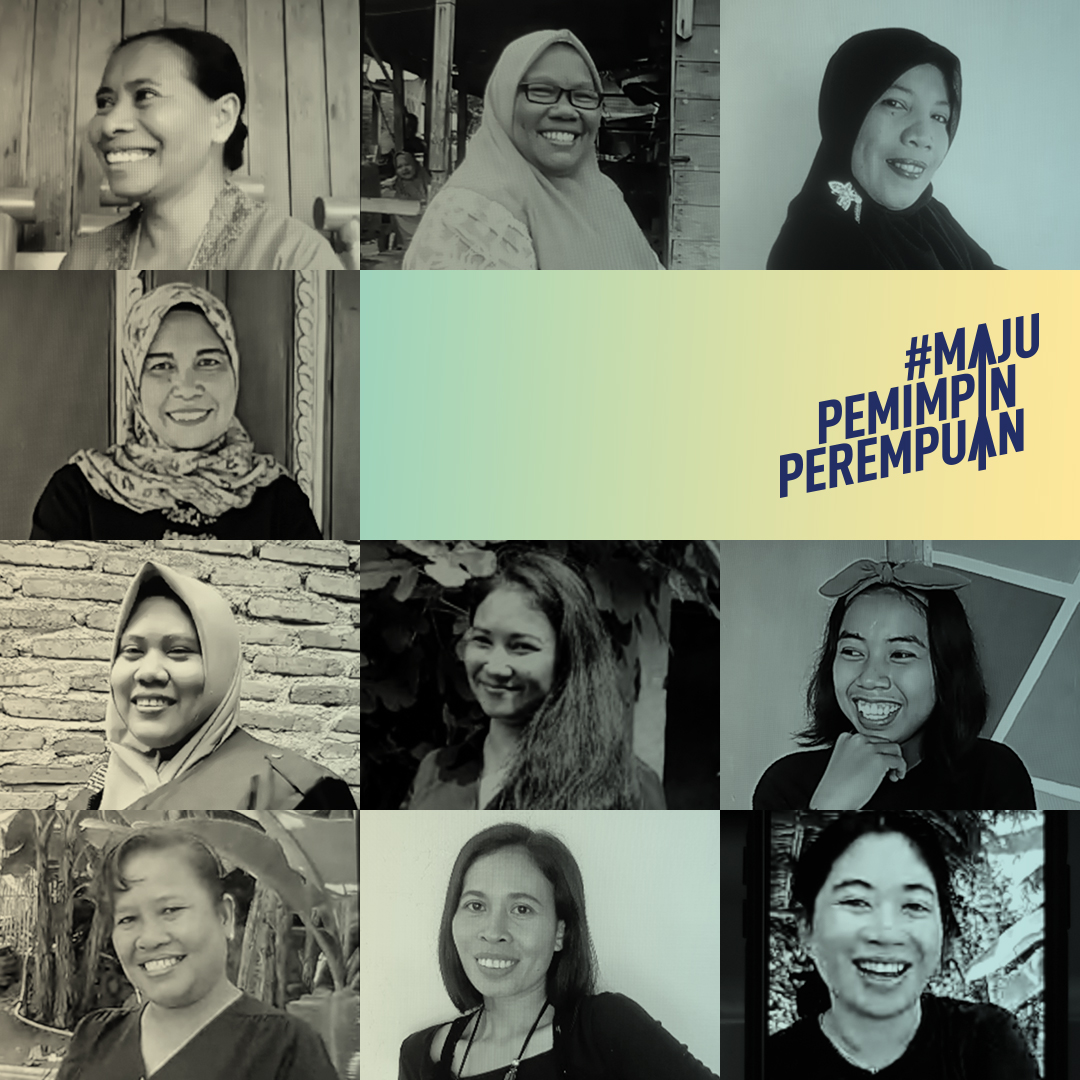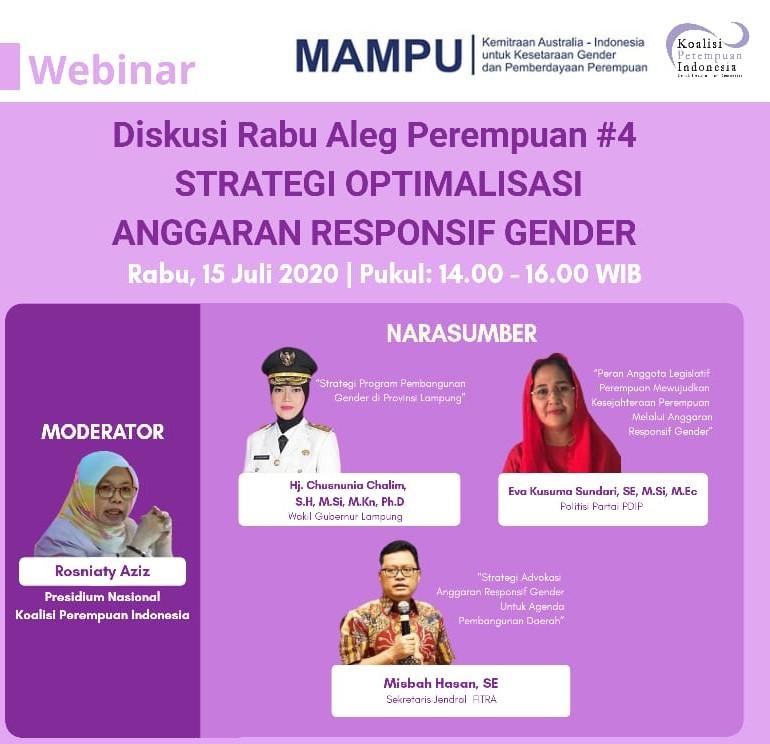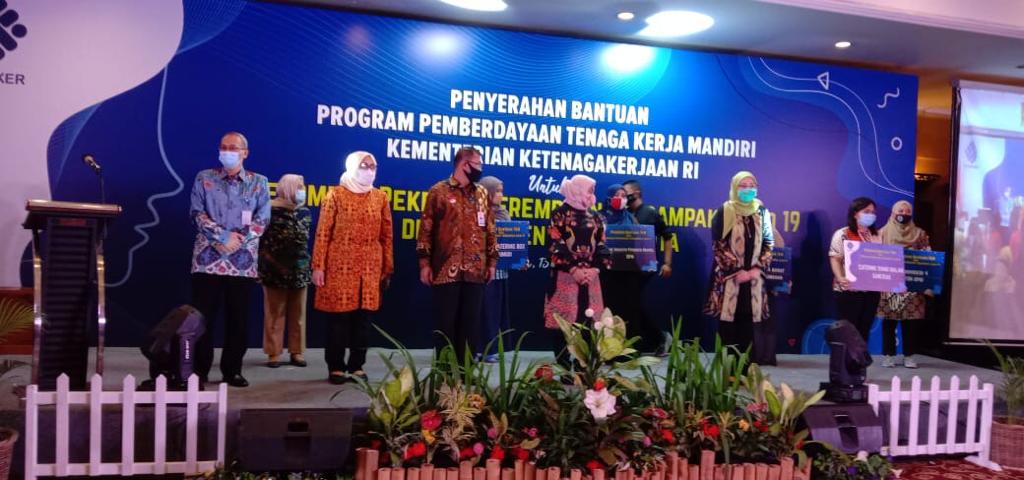Event
MAMPU Program and the Australian Embassy Visit Home Workers in Surabaya
1 May 2018Author: admin

On 18 April 2018, the Australian Embassy and MAMPU Program visited the Indonesian Home Workers’ Partner (MWPRI) in Rungkut sub-district in the city of Surabaya. This visit served as an opportunity for women’s groups and the program’s implementing partners to share their experiences in encouraging local initiatives for the empowerment of women homeworkers.
The Local Government of Rungkut explained the development of small scale industry in Surabaya. Meanwhile, MWPRI described their empowerment activities supported by MAMPU, such as introduction to viable work, organizational skills, and employment protection for workers through the governments national insurance program, BPJS Employment. This multi –stakeholder meeting promotes understanding and cooperation between MWPRI, the sub-district and neighbourhood governments, and the Manpower Office in Surabaya to find solutions for issues to improve working conditions and access to government services for home-based workers.
At the home of Nyumiatun, the delegation met with members from Sakura Flowers women’s homeworkers group (Bunga Sakura) supported by MWPRI in the village of Kali Rungkut, who produce party souvenirs on a piece rate basis from their homes or other residential premises. MWPRI facilitates the formation of women’s groups of homeworkers and supports them to advocate for recognition and increased wages and improved working conditions. “Now that there is a group, I have a place to share my complaints about the work. We hope that in the future these home workers will be acknowledged. We also want attention to be paid to our welfare,” said Nyumiatun while rolling towels to fill an order for that day.
The Kali Rungkut government has signed an MOU on the Cooperation Protection, Development and Empowerment of Home Workers in Kalirungkut, which sets out the role of government in protecting homeworkers.
Through MAMPU Program, MWPRI in East Java has successfully established 48 HomeWorkers Groups in 26 villages representing 866 members.




